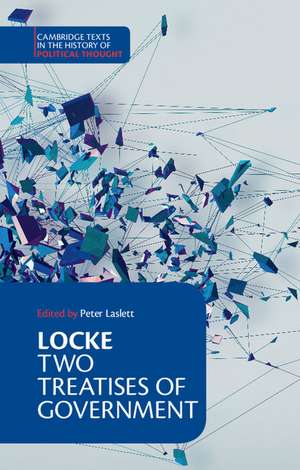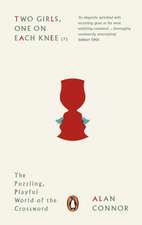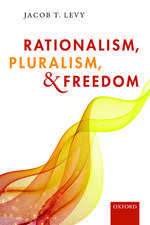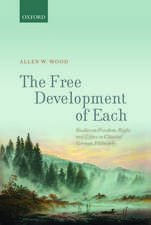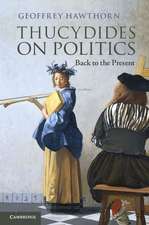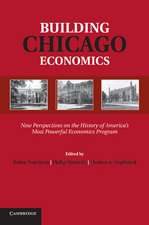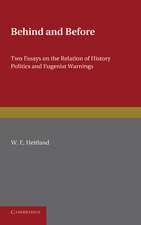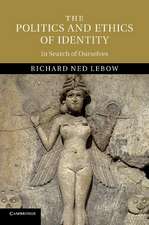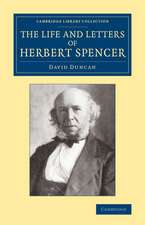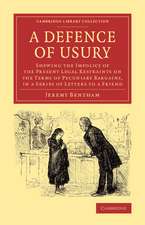Locke: Two Treatises of Government Student edition
Autor John Locke Editat de Peter Lasletten Limba Engleză Paperback – 27 oct 1988
| Toate formatele și edițiile | Preț | Express |
|---|---|---|
| Paperback (3) | 132.18 lei 3-5 săpt. | |
| Hackett Publishing Company – 14 mar 2003 | 132.18 lei 3-5 săpt. | |
| Cambridge University Press – 27 oct 1988 | 135.71 lei 3-5 săpt. | +27.90 lei 7-13 zile |
| Cambridge University Press – 24 sep 1997 | 338.70 lei 6-8 săpt. | |
| Hardback (2) | 344.45 lei 6-8 săpt. | |
| Cambridge University Press – 27 oct 1988 | 344.45 lei 6-8 săpt. | |
| Cambridge University Press – noi 1967 | 693.53 lei 6-8 săpt. |
Preț: 135.71 lei
Nou
Puncte Express: 204
Preț estimativ în valută:
25.97€ • 27.19$ • 21.49£
25.97€ • 27.19$ • 21.49£
Carte disponibilă
Livrare economică 15-29 martie
Livrare express 01-07 martie pentru 37.89 lei
Preluare comenzi: 021 569.72.76
Specificații
ISBN-13: 9780521357302
ISBN-10: 0521357306
Pagini: 478
Dimensiuni: 139 x 217 x 27 mm
Greutate: 0.73 kg
Ediția:Student
Editura: Cambridge University Press
Colecția Cambridge University Press
Locul publicării:Cambridge, United Kingdom
ISBN-10: 0521357306
Pagini: 478
Dimensiuni: 139 x 217 x 27 mm
Greutate: 0.73 kg
Ediția:Student
Editura: Cambridge University Press
Colecția Cambridge University Press
Locul publicării:Cambridge, United Kingdom
Cuprins
Foreword; Part I. Introduction: 1. The book; 2. Locke the man and Locke the writer; 3. Two Treatises of Government and the revolution of 1688; 4. Locke and Hobbes; 5. The social and political theory of Two Treatises of Government; 6. Addendum: the dating of the composition of Two Treatises; Editorial note; Part II. The Text: 7. Preface; 8. First treatise; 9. Second treatise; Suggested reading; Bibliography; Index.
Descriere
A revised 1988 version of Peter Laslett's acclaimed Two Treatises of Government, widely recognised as a classic text in the history of ideas.
Recenzii
"I highly recommend Locke's seventy-five writings here..." S.V.H., Ethics
"...the very existence of a collection of this breadth with this sort of documentation is so remarkable that it seems wrong to criticize it. It is an excellent idea well executed." Ruth Sample, Philosophy in Review
"...the very existence of a collection of this breadth with this sort of documentation is so remarkable that it seems wrong to criticize it. It is an excellent idea well executed." Ruth Sample, Philosophy in Review
Notă biografică
John Locke (29 August 1632 - 28 October 1704) was an English philosopher and physician, widely regarded as one of the most influential of Enlightenment thinkers and commonly known as the "father of liberalism". Considered one of the first of the British empiricists, following the tradition of Francis Bacon, Locke is equally important to social contract theory. His work greatly affected the development of epistemology and political philosophy. His writings influenced Voltaire and Jean-Jacques Rousseau, and many Scottish Enlightenment thinkers, as well as the American Revolutionaries. His contributions to classical republicanism and liberal theory are reflected in the United States Declaration of Independence. Internationally, Locke's political-legal principles continue to have a profound influence on the theory and practice of limited representative government and the protection of basic rights and freedoms under the rule of law.Locke's theory of mind is often cited as the origin of modern conceptions of identity and the self, figuring prominently in the work of later philosophers such as Jean-Jacques Rousseau, David Hume, and Immanuel Kant. Locke was the first to define the self through a continuity of consciousness.He postulated that, at birth, the mind was a blank slate, or tabula rasa. Contrary to Cartesian philosophy based on pre-existing concepts, he maintained that we are born without innate ideas, and that knowledge is instead determined only by experience derived from sense perception, a concept now known as empiricism.
